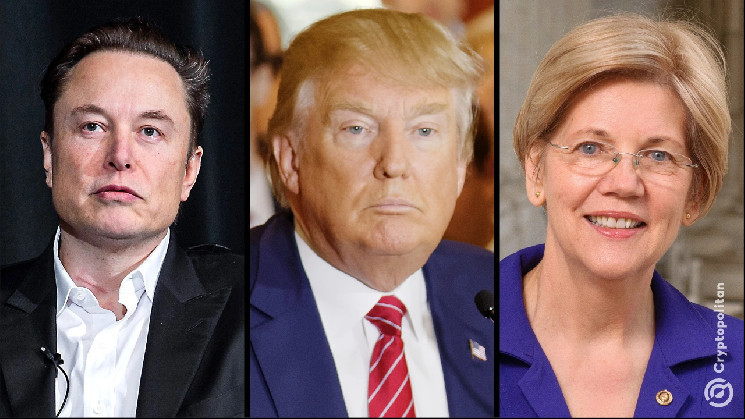Senator Elizabeth Warren has raised concerns about the ethical standards surrounding billionaire Elon Musk’s role as a top adviser to President-elect Donald Trump’s transition team. In a letter to Trump, Warren emphasized the importance of Musk addressing potential conflicts of interest if he is to continue advising the incoming administration.
Warren’s letter points to existing rules set forth by the General Services Administration, which require transition team members to avoid both real and perceived conflicts of interest. Despite these regulations, it remains unclear whether Musk, whose net worth is valued at $474 billion by the Bloomberg Billionaire Index, is subject to these standards.
Musk, known for founding Tesla and SpaceX, is not only serving as an adviser but also co-leading a proposed advisory board aimed at eliminating government waste, known as the Department of Government Efficiency (D.O.G.E.).
Warren has expressed concerns about Musk’s unchecked influence, particularly due to his business empire’s involvement in government contracts and regulatory issues. She highlighted the potential conflicts of interest that could arise from Musk’s close relationship with President-elect Trump, suggesting that it could potentially benefit his companies financially.
Musk’s support for Trump during his presidential campaign, which included hosting events and funding initiatives, aligns closely with his business interests. For example, Trump’s promises to accelerate federal initiatives benefit SpaceX’s Mars exploration programs and Tesla’s electric vehicle infrastructure, which receives federal subsidies.
Warren’s letter emphasized the need for stringent conflict-of-interest agreements to prevent corruption on a large scale. She stressed the importance of ethical oversight to ensure that the government does not become a means of enriching the wealthiest individuals in America.
The extent of Musk’s involvement in the Trump administration raises questions about impartiality, especially as several of his ventures face regulatory scrutiny or have contracts with federal agencies. Tesla, for instance, is currently under investigation by the National Highway Traffic Safety Administration for pedestrian accidents involving its vehicles.
When questioned about potential conflicts of interest, Trump dismissed concerns by stating that Musk prioritizes the country over his business interests. However, Warren’s letter challenges this narrative, citing Musk’s financial stakes and the potential for ethical breaches. She called for transparency and a robust conflict-of-interest agreement to maintain public trust in the administration.
In response to Warren’s concerns, Trump’s transition team spokesperson dismissed the senator’s critique as political theater. The spokesperson emphasized that the administration would continue to uphold the highest ethical and legal standards, despite Warren’s allegations.
Overall, Warren’s letter sheds light on the need for clarity and ethical standards in Musk’s advisory role within the Trump administration. The ongoing scrutiny underscores the importance of maintaining transparency and accountability in government affairs.

